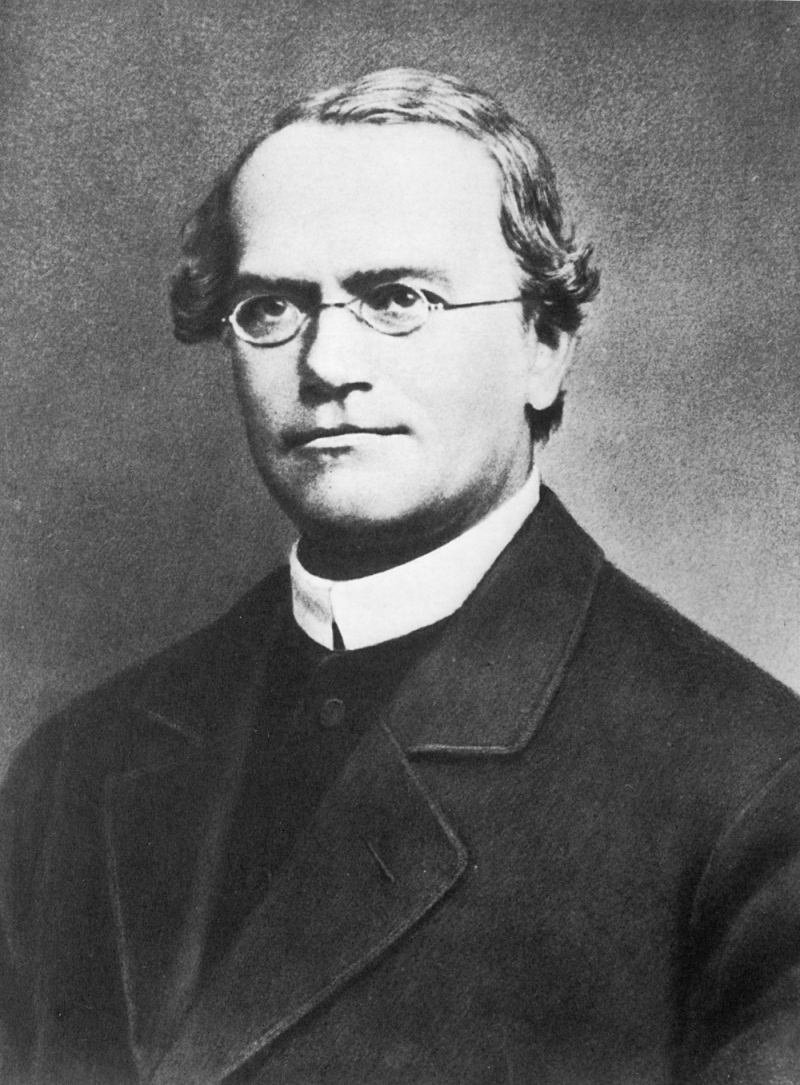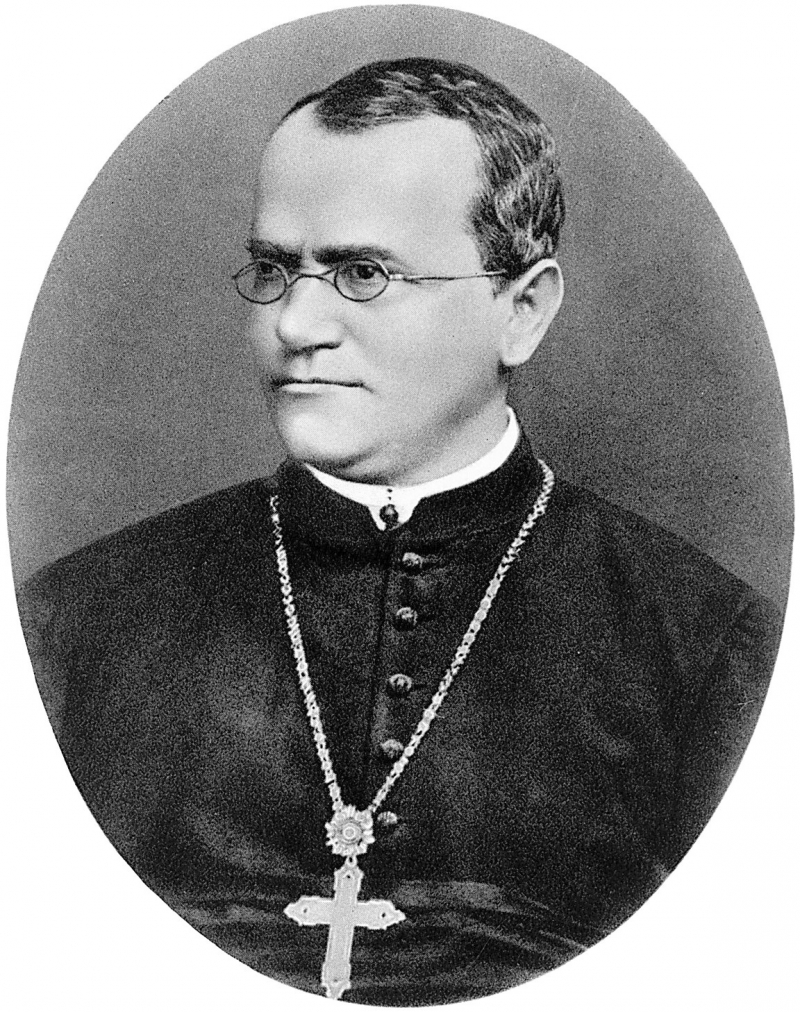Gregor Mendel
Gregor Johann Mendel (20 July 1822 – 6 January 1884) was an Augustinian friar and the abbot of St. Thomas' Abbey in Brünn (Brno), Margraviate of Moravia. Mendel was born in the Silesian section of the Austrian Empire (today's Czech Republic) to a German-speaking family and is widely regarded as the inventor of modern genetics. Though farmers had known for millennia that crossbreeding of animals and plants may favor some desirable qualities, Mendel's pea plant studies between 1856 and 1863 established many of the rules of heredity, now known as Mendelian inheritance laws.
Mendel experimented with seven pea plant characteristics: plant height, pod form and color, seed shape and color, and bloom location and color. Mendel demonstrated that when a true-breeding yellow pea and a true-breeding green pea were cross-bred, the progeny always produced yellow seeds. However, the green peas emerged in the following generation at a 1 green to 3 yellow ratios. Mendel used the terms "recessive" and "dominant" in regard to specific features to explain this phenomenon. In the above example, the green trait is recessive and the yellow trait is dominant, despite the fact that it appears to have vanished in the first filial generation. He presented his findings in 1866, establishing the role of genes in determining an organism's features reliably.
The tremendous significance of Mendel's work was not realized until the turn of the twentieth century (more than three decades later) when his laws were rediscovery. In 1900, several of Mendel's experimental findings were independently corroborated by Erich von Tschermak, Hugo de Vries, and Carl Correns, ushering in the modern era of genetics.













